Doctors' top tips to manage prostate cancer risk factors
Regardless of your age, race, or family history, you can take steps to manage your prostate cancer risk.
There are usually no symptoms in the early stages of prostate cancer, so talk with your doctor to see if regular screening is right for you.
Many factors contribute to a man’s risk of developing prostate cancer. Kaiser Permanente doctors offer information on understanding and reducing those risk factors.
Prostate cancer is the most common cancer among men in the United States. It’s also one of the leading causes of cancer death among American men of all races.
About 1 in 8 men in the United States will face prostate cancer during their lifetime.
“Studies tell us that age, family history, and race strongly influence your chances of developing prostate cancer,” said Farah M. Brasfield, MD, regional chief of hematology and oncology for Kaiser Permanente in Southern California.
Know your prostate cancer risk factors
As men age, their risk of developing prostate cancer increases. That’s why prostate cancer is most common in men older than 65.
“But younger men can also get prostate cancer, so it’s important to discuss testing for prostate cancer with your doctor,” said Dr. Brasfield.
Men with a family history of prostate cancer have a greater risk of developing it. Also, Black men are more likely to get prostate cancer, and are more than twice as likely to die from prostate cancer compared to men of other races.
Know the signs and symptoms of prostate cancer
Prostate cancer tends to be a slow-growing cancer. It often takes years for prostate cancer to cause noticeable health problems.
The first symptom is usually difficult or painful urination. Other symptoms include:
- Urinating often, especially at night
- Pain or burning during urination
- Blood in the urine or semen
- Difficulty having an erection or painful ejaculation
- Deep or frequent pain in the lower back, stomach, hip, or pelvis
Men who experience any of these symptoms should see a doctor right away.
“There are usually no symptoms in the early stages of prostate cancer. Most men are unaware they have prostate cancer until it’s detected during a regular medical exam,” Dr. Brasfield said. “That’s why regular screening is so important.”
When should screening begin?
Men age 50 to 69 should talk with their doctors to see if prostate cancer screenings should be part of their regular checkups. Men in high-risk groups, including Black men and men with a family history of prostate cancer, may start getting screened at age 45.
“Since Black men tend to have more advanced prostate cancer once it’s found, we typically recommend they start getting screened at a younger age,” said Eugene Young Rhee, MD, national chair of urology for Kaiser Permanente in San Diego.
Reduce your risk of prostate cancer with a healthy lifestyle
“I encourage men, especially those in higher-risk groups, to talk about prostate cancer with their doctor during their routine annual physical,” Dr. Brasfield said. “Prostate cancer is highly treatable when caught in its earliest stages.”
Men who want to lower their risk should:
Eat nutritious food
Red fruits and vegetables, such as tomatoes and red bell peppers, as well as cruciferous vegetables like kale and cauliflower are especially good choices. It’s important to limit red meat and processed meats, such as bacon and sausage.
Get to and maintain a healthy weight
Being overweight or obese can increase your risk of developing more serious or even fatal prostate cancer.
Be physically active
Men who are physically active have a slightly reduced risk of developing prostate cancer.
Learn more about healthy lifestyle programs and cancer care at Kaiser Permanente.
-
Social Share
- Share Managing Your Prostate Cancer Risk Factors on Pinterest
- Share Managing Your Prostate Cancer Risk Factors on LinkedIn
- Share Managing Your Prostate Cancer Risk Factors on Twitter
- Share Managing Your Prostate Cancer Risk Factors on Facebook
- Print Managing Your Prostate Cancer Risk Factors
- Email Managing Your Prostate Cancer Risk Factors

March 27, 2025
Living proof: Colon cancer highly treatable if caught early
There is an alarming rise in colon cancer rates among younger adults. Cynthia …

February 26, 2025
Colon cancer: Do you need to be screened?
If you’re age 45 or older, getting checked regularly for colorectal cancer …

February 14, 2025
A fulfilling life on the other side of ovarian cancer
As a wife and a mother, Autumn Gray was determined to beat cancer to be …
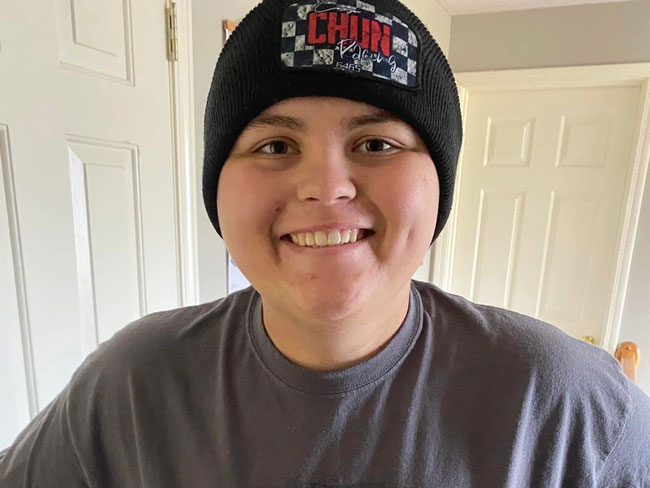
February 12, 2025
Back on track after a rare cancer diagnosis
After facing sarcoma at age 18, drag-racing champion Cooper Chun needed …

January 24, 2025
Is one drink a day OK? Here’s what to consider
NPR

January 13, 2025
How to prevent cervical cancer
Cervical cancer is highly preventable. HPV vaccination and regular screenings …

December 26, 2024
How telehealth can make life easier for people with cancer
Virtual care connects cancer patients like Rob Tufel to a wide range of …

November 18, 2024
The power of early detection and proactive men’s health
A father's determination to stay healthy for his 3 children led him to …

October 1, 2024
Screening for breast cancer: Mammogram guidelines
A Kaiser Permanente radiologist answers commonly asked questions.

September 20, 2024
Ovarian cancer journey confirmed nursing student's calling
Miriam Gutierrez was diagnosed with late-stage ovarian cancer at age 31. …

September 18, 2024
Cancer rates are rising in younger age groups
‘Connect’ with research to help understand more about the increase of certain …

September 17, 2024
Playing on after 2 decades of cancer care
With the support of his health care team and nurse navigator, musician …

August 29, 2024
After Stage 4 ovarian cancer, she’s still going strong
Donna Budway received prompt surgery followed by chemotherapy. She credits …

August 26, 2024
Katie's ride: Motorcycle rally a surprise for patient
Kaiser Permanente in San Diego helped plan a special send-off for Katie …

August 15, 2024
Back home one day after heart surgery
Ed Dalmasso needed an aortic valve replacement. His care team provided …

August 6, 2024
For a father with prostate cancer, knowledge is power
Harold Newman had advanced prostate cancer. Genetic testing helped expand …

August 1, 2024
Early prostate cancer detection helps one patient fight back
After a successful treatment, Luke Klein is giving back as a mentor who …

June 17, 2024
A culture of caring eases a cancer journey
Exceptional, personalized radiation oncology care helped Maura Craig treat …

June 13, 2024
Conquered 2 cancers while climbing mountains
Chris Hogan faced kidney cancer and prostate cancer at the same time. He …

June 3, 2024
A call to ‘Connect’ for cancer prevention research
Participate in a study to help uncover the causes of cancer and how to …

May 31, 2024
Stage 4 lung cancer: A story of hope
A young father is enjoying “bonus time” with his kids thanks to new targeted …

May 21, 2024
Surviving stage 4 lung cancer with immunotherapy treatment
Patients like Carol Pitman are living longer thanks to advances in lung …

May 7, 2024
Making cancer care more convenient in Southern California
Kaiser Permanente has opened a new Radiation Oncology Center at the Bellflower …

April 17, 2024
5 common health conditions men don’t like to talk about
Some of the most common conditions affecting men carry a social stigma …

April 1, 2024
Lynch syndrome: Managing the risk of hereditary colon cancer
Lynch syndrome is a gene mutation that increases colon cancer risk. Learn …

March 20, 2024
Life after cancer: Surviving and thriving
A healthy life after cancer is possible. Learn how Kaiser Permanente helps …

March 6, 2024
Joining a national effort to test new ways to find cancer
As part of the Cancer Screening Research Network, our researchers will …
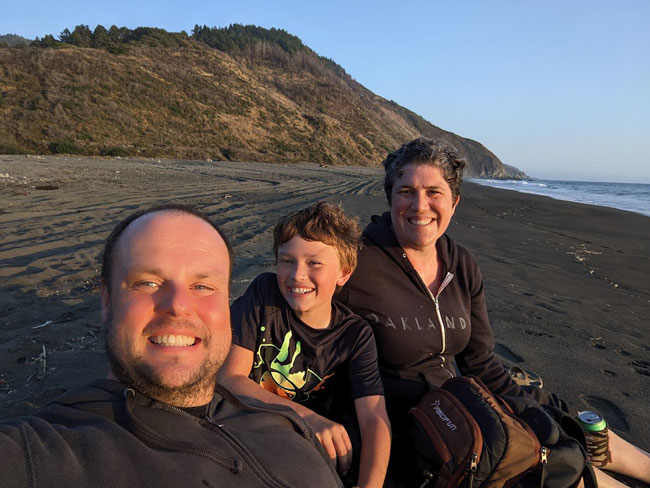
March 6, 2024
Colon cancer screening: She’s glad she didn’t wait
A timely preventive test reveals Rebecca Kucera has cancer. Swift treatment …

March 5, 2024
Researchers look for ways to find pancreatic cancer early
Early detection of the disease, before it becomes advanced, will increase …

February 21, 2024
Recovering at home after a double mastectomy
Innovative surgical recovery program helps breast cancer patients safely …

January 24, 2024
A full-circle journey for one cancer survivor
Grateful for compassionate and successful Hodgkin lymphoma treatment at …

January 10, 2024
‘You don’t know unless you ask them’
Kaiser Permanente’s Patient Advisory Councils help us create exceptional …
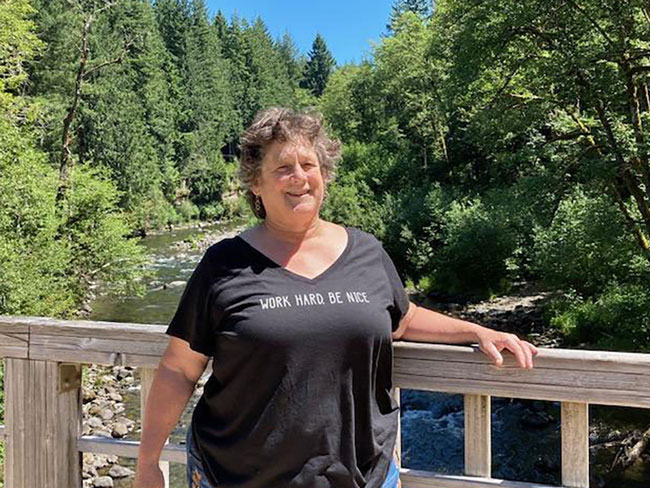
December 13, 2023
Nurse navigators guide patients from diagnosis to treatment
An unexpected cancer diagnosis left Jennifer Martin unsure of the next …

December 6, 2023
Leading research with gratitude
Learn how you can participate in a study to uncover what causes cancer …

December 1, 2023
Surviving — and thriving — after cancer
From diagnosis to recovery, David Parsons, MD, shares how screening, treatment, …

October 25, 2023
Breast cancer during pregnancy: Caring for mom and baby
A team of specialists treats an expecting mother’s cancer while keeping …

October 23, 2023
A renewed sense of purpose after surviving breast cancer
Joy Short, a Kaiser Permanente member and employee, turned her breast cancer …

October 11, 2023
Early breast cancer detection improves quality of life
For 75-year-old Peggy Dickston, a surprise diagnosis was caught early thanks …

September 20, 2023
Healing after a heart attack
For years, serious heart attacks meant hours of weekly appointments. Now, …

August 29, 2023
Preventing overdoses starts with education
Risk factors are not always associated with addiction or substance abuse. …

August 17, 2023
Beyond clinic walls: Research supporting healthy communities
Stories in the Department of Research & Evaluation 2022 Annual Report demonstrat …

August 17, 2023
Cancer research: The role of immunotherapy
Research and clinical trials play a vital role in advancing cancer treatment …

August 16, 2023
Cervical cancer screening: Exploring the at-home HPV test
Kaiser Permanente is at the forefront of cervical cancer research. Find …

August 14, 2023
Marla’s story: Surviving acute promyelocytic leukemia
After a diagnosis for a rare type of blood cancer, Marla Marriott got high-quali …

August 4, 2023
Eating well and adopting healthy habits helps prevent cancer
Learn how lifestyle medicine is part of cancer care at Kaiser Permanente.

July 27, 2023
Courageously facing hereditary breast cancer
Fay Gordon's breast cancer was caught in the early stages thanks to genetic …

July 26, 2023
Can you get chemotherapy while pregnant?
Chemotherapy can be an option during pregnancy. Find out how Kaiser Permanente …

July 21, 2023
Thankful for every day after HPV-related cancer diagnosis
Michael West shares his incredible journey from diagnosis to treatment …

July 14, 2023
Breast reconstruction surgery after cancer
A Kaiser Permanente plastic surgeon explains breast reconstruction options …

July 10, 2023
Beating colon cancer together: Miguel and Paula’s story
After they were both diagnosed with colon cancer, Miguel and Paula fought …

June 30, 2023
Men's mental well-being is a priority
Unique challenges and societal pressures can impact men’s emotional well-being.

June 30, 2023
Lung cancer survivor received ‘pioneering’ care
Doctor and mother of 3 Susan Brim received top-notch care after her lung …

June 27, 2023
Men: It’s time to prioritize preventive care
It’s important to be proactive about your health by scheduling regular …

June 27, 2023
Comforting, personalized care for a kiddo with cancer
Carter Shaver from Portland, Oregon, shares his optimistic smile after …

June 22, 2023
Higher survival rates for our patients with colon cancer
A new study compares Kaiser Permanente members in Southern California to …

June 15, 2023
Stay safe while having fun in the sun
Tips for preventing sunburn and decreasing the risk of skin cancer.

June 14, 2023
Living with stage 4 breast cancer
Thanks to personalized care from a team of skilled doctors, Christina McAmis …

May 30, 2023
The healing power of shared cancer experience
Peer mentoring program matches new cancer patients with others who’ve gone …

April 25, 2023
Hannah Peters, MD, provides essential care to ‘Rosies’
When thousands of women industrial workers, often called “Rosies,” joined …

March 17, 2023
A call to 'Connect' for cancer research
A new study invites participants in Oregon to help uncover what causes …

March 14, 2023
Colorectal cancer on the rise among younger adults
Learn why early screening is crucial for prevention and treatment.

February 28, 2023
What you need to know about COPD
Almost 16 million people in the United States have chronic obstructive …
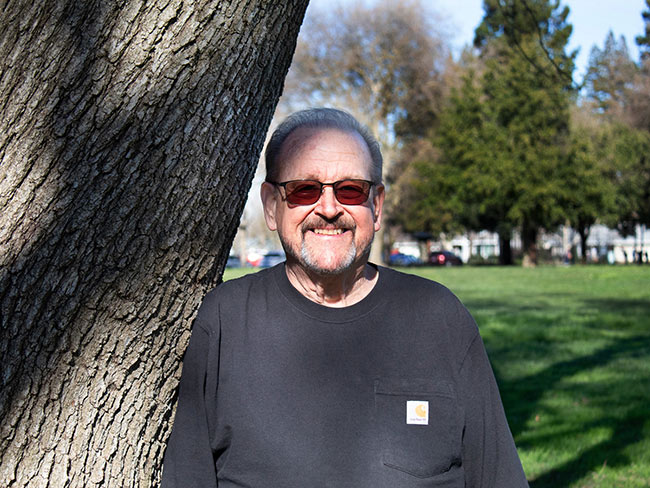
February 15, 2023
A new chapter for male patient with breast cancer
A multidisciplinary care team acted fast to help save the life of a Kaiser …

January 13, 2023
Making dreams come true
Member achieves bucket list goal of helping to build a Rose Parade float, …
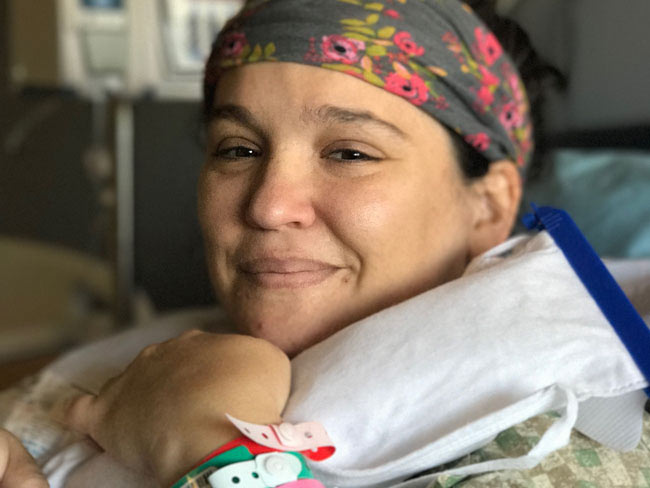
December 21, 2022
From cancer patient to cancer colleague
A Kaiser Permanente member’s cancer journey inspires her to join the team …

November 14, 2022
It’s time to rethink health care quality measurement
To meaningfully improve health equity, we must shift our focus to outcomes …

August 17, 2022
Cancer clinical trials: Can they help find a cure?
These important research studies aim to help patients live longer, better …

May 5, 2022
Research study will inform the future of cancer prevention
Connect for Cancer Prevention Study’s goal to recruit 200,000 participants …

April 20, 2022
The perfect match: Living kidney donation saves LAPD officer
Bobbie Norman is grateful for 15 years of health after his wife — a fellow …

June 8, 2021
Cancer patients and physicians embrace telehealth
Video visits and virtual collaboration speed cancer care transformation …
April 5, 2021
Weight linked to risk of second cancer after breast cancer
Kaiser Permanente study has important public health implications given …

July 21, 2020
Diagnostic and preventive care is in our DNA
A routine screening helped detect Bill Walsh’s cancer before it became …

January 21, 2020
Destination health: Stopping cancer before it starts
Kaiser Permanente is creating more healthy life years with a combined focus …

October 8, 2014
Breast cancer isn’t just a woman’s issue
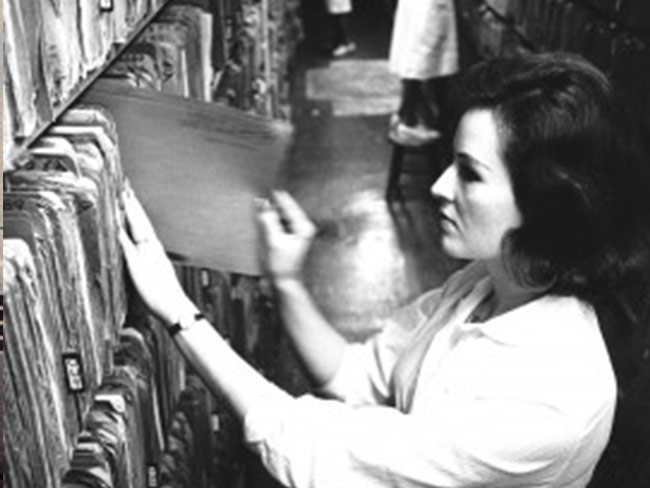
March 6, 2013
Decades of health records fuel Kaiser Permanente research
Over 50 years of early Kaiser Permanente electronic health records since …